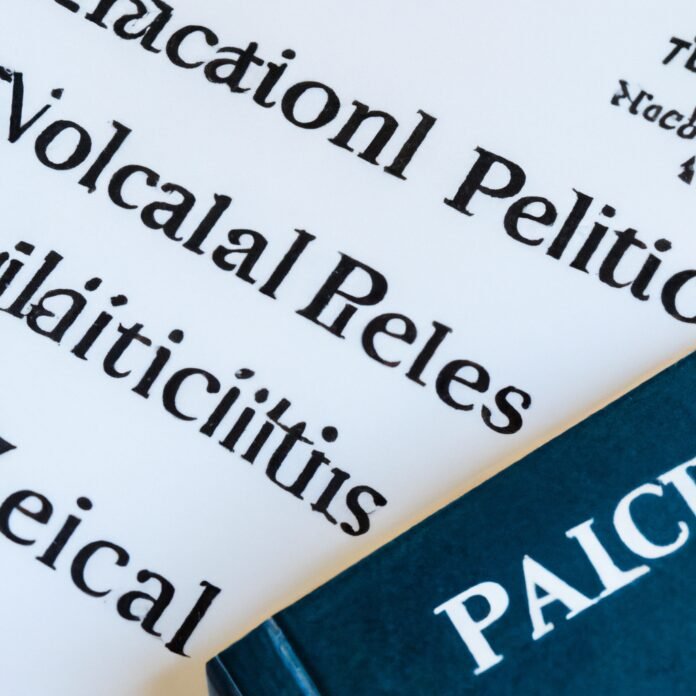With a debate raging around the world for years now, vaccination ethics and public health takes the centre stage. Balancing the individual rights and collective health can be tricky, and it often turns out to be a tug of war between individuals and society. From economic cost to medical effectiveness, vaccine efficacy and personal liberty, the choices to make can be emotionally charged. It is time to have an honest and open conversation about the conflicting sides of this ethical issue.
1. Unravelling the Complexities of Vaccination Ethics
The ethical considerations of administering vaccines to the public are ones that require sober attention. It begins with understanding the moral importance of safeguarding the public’s well-being. Vaccines save and protect lives in the immediate sense and have prevented untold numbers of illnesses over generations. And yet, there are ethical complexities to consider when it comes to allocating resources for manufacturing, distributing, and administering the treatment, even beyond the immediate public’s direct benefit.
Vaccination is an example of a collective good, meaning that an individual’s immunization provides a benefit to the public welfare, not only to the vaccinated person. This creates a conundrum, as purchasing, administering, and stockpiling the vaccine does not always show a direct benefit for the individual purchasing it.
- Who should be able to access the vaccine, and who should pay for it? Should it be available for purchase, or provided for free?
- What demographic provides the greatest value if vaccinated? Should children and immunocompromised persons be given higher priority, or should the medical condition be taken into account?
- Are there any safety concerns when it comes to administering the vaccine? How should different vaccine manufacturers be monitored?
These considerations become even more complex when discussing the ethical implications of vaccine distribution to regions of crisis, such as war-torn or economically disadvantaged nations. In these cases, scarce resources may prevent administrations from establishing a widespread immunization program. And yet, the importance of protecting their citizens is no lesser than any other nation.
It is up to vaccine experts and volunteers to navigate the ethical considerations of where resources should be distributed, how to provide the vaccine in a safe and effective manner, and how to administer it in a way that works for the particular conditions of different regions.
2. Exploring the Intersection of Public Health and Individual Rights
The way our societies grapple with public health problems have long been determined by the delicate balance between preserving individual freedom and effectively controlling pandemics. As society becomes increasingly interconnected through technology and large-scale globalization, understanding the issues surrounding this intersection has become all the more important.
Effects of Public Health on Individual Rights: National public health initiatives often have far reaching consequences on individual rights. From the most draconian measures such as restricting freedom of movement, to seemingly minor steps like restricting large public gatherings, policies related to public health have a direct impact on every person’s right to remain autonomous. These restrictions often affect those of lower economic backgrounds more than those of more privileged backgrounds, making the ramifications of public health decisions particularly complex.
Advantages of Intersecting Public Health and Individual Rights: Restrictions can be unpopular, so governments must balance them appropriately. By involving people in the process of developing public health initiatives, protecting individual rights while still preserving the public’s health becomes much more feasible. For example, providing people with access to accurate information and allowing them to take the necessary measures they deem appropriate, such as contact tracing, can be a powerful tool for controlling any kind of pandemics.
- Informing the public of the situation and empowering them to take action
- Consistently upgrading national healthcare systems and equipment
- Fostering positive behaviors and attitudes towards the public health measures
No matter how the clash between public health and individual rights is approached, it’s essential for governments, communities, and citizens to strive for a better understanding of the issues at hand and work together towards an optimal solution.
3. Examining the Impact of Vaccinations on Public Wellbeing
Vaccinations are amongst humankind’s greatest medical achievements. Not only do they directly prevent millions of individuals each year from contracting deadly diseases, but vaccinating large segments of the population also helps reduce the spread of illness in entire communities. However, the impact of vaccinations goes far beyond the physical realm. Here, we’ll explore how vaccinations bolster public wellbeing:
- Reinforcing herd immunity: Nowadays, the vast majority of diseases can be prevented using vaccinations. As a result, those who are protected become immune to the illness, forming a ‘herd immunity’ effect. Conversely, those who are not vaccinated pose a risk of spreading the disease, and could cause it to spread rapidly. To combat this, many countries have implemented voluntary or mandatory vaccination programs to ensure herd immunity.
- Hassle-free protection: Vaccines protect individuals from deadly illnesses, and once immunized, a person will never need to worry about being affected by a particular virus. This frees up an immense amount of personal and public resources. For instance, doctors’ offices won’t need to put as much focus on administering treatments for the ailments which are vaccine-preventable.
- Preferential Access: Vaccines often remain limited for those living in lesser developed regions. When communities are able to afford vaccines, it allows those who can’t access the same medication the chance to receive preferential treatment. This helps to ensure that the spread of ailments is kept at a minimum, creating a greater sense of wellbeing throughout the population.
4. Finding a Balance Between Vaccine Mandates and Unvaccinated Individuals
Finding an appropriate balance between vaccine mandates and unvaccinated individuals is a delicate process. As with any decision concerning humans, there are both positives and negatives to consider. On one hand, vaccines protect a person and society from infectious diseases, yet on the other hand, it is becoming increasingly common for people to choose not to vaccinate.
Determining when and how to balance vaccine requirements with those of the unvaccinated population is tricky. Undoubtedly, the health and safety of populations is of utmost importance. Thus, there are a few solutions that the government should consider in order to reach a balance that satisfies all parties involved:
- Education
Promoting education and awareness on vaccines and their role in public health could create a shift in the outlook towards vaccination. Becoming more aware of the benefits of vaccines may be enough to make some people less hesitant to vaccinate. - Impose Vaccine Requirements
Requiring vaccination for oneself and for children when attending school or daycare could also be effective. Vaccination eligibility should be clear and understood by all. - Accept Vaccine Exemptions
People who are on the fence about vaccinating can also be provided with the option of exemptions on a case-by-case basis. However, these exemptions must be strictly reviewed, and the individual must be aware of the risks associated with not being vaccinated.
Finding the right balance between vaccinations and the needs of those who are unvaccinated is not an easy task, but with some effort, it can be achieved. Utilizing any combination of the solutions presented could help establish a foundation for a fair and beneficial decision.
5. A Solid Pathway for Guiding Vaccination Ethics Policies
As the debate around the ethical responsibilities of vaccination policies intensifies, it becomes ever more important to provide a reliable pathway to help guide the process. Establishing a foundation of ethical principles and policy guidelines is essential in making sound decisions about vaccination initiatives.
Here are a few points that should inform the creation of a solid ethical pathway when crafting vaccine policies:
- Accountability: Vaccinators should be held accountable for the cost, safety and efficacy of their vaccination initiatives.
- Informed Consent: Vaccine recipients should be informed about the potential side effects and risks.
- Public Input: Local populations should be engaged in the decision-making process by allowing publicly accessible, transparent information.
- Equity of Access: Vaccines should be accessible to all, regardless of race, gender, economic situation, etc.
In addition to the points listed above, there are other considerations to keep in mind when creating a sound ethics pathway. Namely, it should be flexible to accommodate for varying contexts and challenges. Also, it should provide a unified framework to all stakeholders within a community to help ensure everyone is working toward the same goal – providing safe and effective vaccinations.
The process of creating a solid ethics pathway for vaccination initiatives will ensure that essential elements are incorporated into policies from the ground up. This will help bolster the understanding behind why policymakers make the authoritarian decisions they do, and provide the public with the confidence that their voices are being heard.
The debate over vaccination ethics and public health is surely going to continue for some time, as scientists, physicians, and policy makers strive to find the right balance between individual rights and collective health. The answers and solutions may not be easy, but with increased education and greater communication between all parties, these complex ethical issues can be responsibly addressed.

